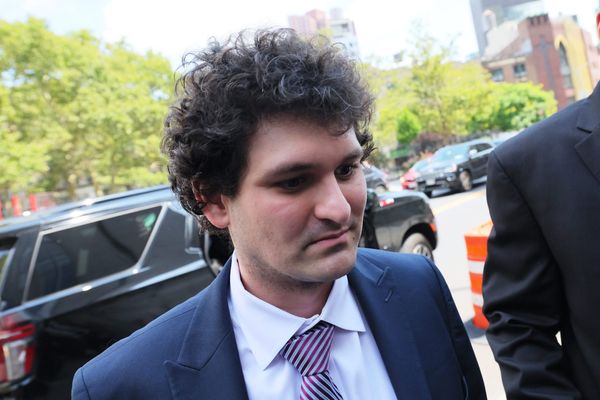Three years to the day after a bribery case unveiled against Commonwealth Edison blew the lid off the investigation into then-House Speaker Michael Madigan, a federal judge dismissed the charges against the utility giant as part of a deferred prosecution agreement with the U.S. attorney’s office.
In announcing the charges on July 17, 2020, prosecutors accused ComEd of orchestrating a “yearslong bribery scheme” involving jobs, contracts and payments to allies of Madigan.
Prosecutors said the utility attempted to “influence and reward” Madigan by providing financial benefits to some of those close to him, often through Downstate lobbyist Michael McClain, a key confidant and adviser at the center of the probe.
At the time, Madigan, the nation’s longest-serving speaker and Illinois Democratic Party chairman, had not been charged with any wrongdoing and was identified in court papers as “Public Official A.”
That all changed in March 2022, when Madigan was indicted on racketeering conspiracy charges that included the ComEd scheme as well as other alleged wrongdoing.
The proceedings in court Monday were a formality, since U.S. District Judge John Kness had already accepted the terms of the agreement to defer prosecution, which required ComEd paid a record $200 million fine and cooperated in the probe of its lobbying practices in Springfield.
Kness officially dismissed the bribery count after prosecutors confirmed that the company had fulfilled all of its obligations under the agreement.
After the hearing, ComEd CEO Gil Quiniones said in an emailed statement the company remains committed at all levels “to the highest standards of integrity and ethical behavior for our business, and to continuing to build the trust of our customers.”
But while ComEd’s criminal exposure is now over, the case still has a long way to go.
Madigan, 81, and McClain, 75, are charged in a 23-count indictment with racketeering conspiracy and individual counts of using interstate facilities in aid of bribery, wire fraud and attempted extortion. They have pleaded not guilty, and a jury trial is set for next April.
Among the allegations in the indictment was a scheme by ComEd to secretly funnel hundreds of thousands of dollars in payments and other perks to Madigan loyalists in exchange for the speaker’s influence on legislation in Springfield.
Four others charged separately in that scheme, including McClain, were convicted by a jury on bribery conspiracy charges in May. McClain is scheduled to be sentenced for that offense in January, along with former ComEd CEO Anne Pramaggiore, lobbyist John Hooker, and consultant Jay Doherty.
The same cadre of former ComEd executives employees who testified for the prosecution in the “ComEd Four” trial — including ex-Vice President Fidel Marquez and Tom O’Neill, who served as ComEd’s top in-house attorney — are expected to take the stand in Madigan’s trial as well.
Also charged as part of the investigation was Tim Mapes, who was Madigan’s long-serving chief of staff. Mapes is scheduled to go on trial next month on charges he lied to a federal grand jury investigating Madigan and McClain, including efforts to hide McClain’s role in the ComEd scheme.
In addition to the ComEd allegations, Madigan is accused of participating in a similar scheme to funnel payments from AT&T Illinois to a Madigan associate in exchange for the speaker’s influence over legislation the telephone company wanted passed.
The Madigan indictment also accused the former speaker — along with the assistance of McClain — of illegally soliciting business for his private property tax law firm during discussions about a potential commercial development on a state-owned parcel of land in Chinatown.
ComEd, meanwhile, has asked the legislature this year to approve a four-year, $1.47 billion rate increase, seeking to bolster its grid for the projected demands of EVs, electrification and climate change. If approved by state regulators.
Under the proposal, which is being challenged by the Citizens Utility Board as excessive, ComEd customers will pay an average of $17 per month more for delivery charges by 2027.
In his statement Monday, Quiniones said that as the state “transitions to a cleaner energy future,” the company’s 6,300 employees “remain focused on continuing to deliver highly reliable, resilient, and increasingly clean power to our more than 9 million customers across northern Illinois.”
____







